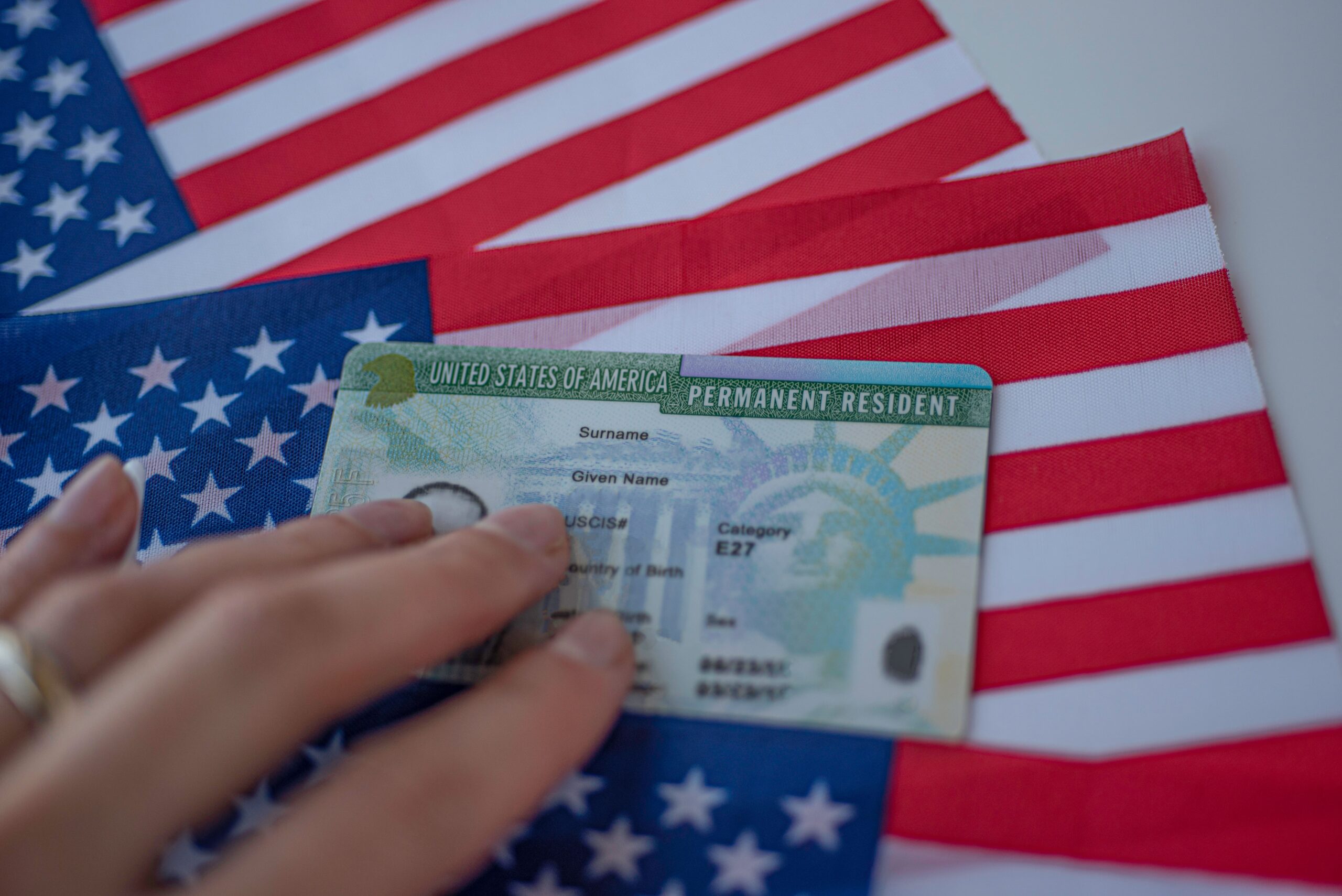If you are involved with the U.S. immigration system, you have likely seen references to the alien registration number, often abbreviated as “A-number.” A noncitizen’s A-number, issued to applicants for long-term status in the U.S., serves as the noncitizen’s identifier as they interact with immigration-focused government agencies, like U.S. Citizenship and Immigration Services (USCIS), U.S. Customs and Immigration Enforcement (ICE), and U.S. Customs and Border Protection (CBP). Whatever immigration benefits you are pursuing, your A-number plays an essential role in your case.
At the Law Office of Rosina C. Stambaugh, we understand that immigration is exciting, but immigration law can feel overwhelming. Our team, composed of individuals with personal connections to the immigration process, offers clear, compassionate guidance to help individuals and families overcome legal obstacles and build stable futures in the United States. We are here to help you understand and manage every step of the immigration process, including locating and using your A-number effectively.
What Is an Alien Registration Number?
An alien registration number (A-number) is a unique identification number assigned by a Department of Homeland Security (DHS) branch, such as USCIS, ICE, or CBP. Noncitizens hoping to live in the U.S. long-term, such as applying for a green card or seeking asylum, typically receive an A-number when they begin the formal application process. Those facing removal (deportation) proceedings also receive A-numbers for their immigration court cases.
Your A-number may appear as:
- “A” followed by eight digits, such as A12345678;
- “A” followed by nine digits, such as A012345678; or
- An eight- or nine-digit number without an A at the start.
If your A-number is too short by one digit, you may need to add a 0 to the front when filling out forms.
How to Get an Alien Registration Number?
The U.S government assigns alien registration numbers when a noncitizen formally interacts with the U.S. immigration system. That means you may receive an A-number when:
- You apply for a green card;
- ICE places you in removal (deportation) proceedings; or
- You apply for other immigration benefits that permit you to remain in the U.S. longer, such as asylum or Temporary Protected Status (TPS).
Most temporary visa holders do not receive an A-number because those visas authorize noncitizens to spend a limited time and perform limited activities in the U.S. However, if you are in the U.S. on a temporary visa and apply for employment authorization, such as an F-1 visa holder seeking practical training, you may receive an A-number.
How Do You Use Your Number?
Once assigned, your A-number becomes your identifier throughout all interactions with the U.S. immigration system. You use the same A-number with USCIS, CBP, ICE, and other agencies.
The government uses A-numbers to:
- Maintain accurate and centralized immigration records;
- Link immigration filings, correspondences, and decisions;
- Track the status of immigration proceedings;
- Manage removal or detention cases; and
- Record biometric and background check results.
Individuals use their A-number to:
- Complete USCIS forms and apply for immigration benefits;
- Check the status of pending applications on the USCIS website; and
- Communicate with government officials, who frequently request the A-number as part of any inquiry.
For detained noncitizens or those in removal proceedings, the A-number can also help you locate the person and learn their detention status through the ICE detainee locator.
How to Find an Alien Registration Number?
Many immigrants are unsure where to find an alien registration number, especially when dealing with complicated government correspondence that means very little to someone without a legal background. Yet, most documents and notices you receive from an immigration-focused government agency should contain your A-number. Unfortunately, these documents use different names when referring to it.
Where Can I Find My Alien Registration Number on Physical Paperwork?
Your number should appear on the following documents, in the following locations, and using the following terms:
- Permanent Resident Cards (green cards)—under “USCIS #” on newer cards or “A#” on older cards;
- Form I-797, Notice of Action, such as an I-797C Receipt Notice—in the upper right under “USCIS Alien RegistrationNumber,” “USCIS A#,” or under “Beneficiary” next to or above the noncitizen’s name;
- Employment Authorization Documents (EADs)—under “USCIS #” on newer cards or “A#” on older cards;
- Immigrant Data Summary and Immigrant Fee Handout —at the top center or the top right, under “A-number” or “Alien Registration Number”;
- Immigrant visas stamped into passports—under “Registration Number”; and
- Immigration court documents, such as a Notice to Appear (NTA)—in the upper right under “File Number.”
If you are still struggling to locate an A-number, it is part of the non-citizen’s identifying information and should appear near the noncitizen’s name and birth date and contain eight or nine digits.
Where Can I Find My Alien Registration Number Online?
USCIS is in the process of transitioning to online filing. While it still accepts paper applications only for some types of visas, many individuals can use the online filing system. If you do, you should be able to access and download documents listing your A-number, like receipt notices and other official correspondence. Your profile may also identify your A-number.
Where Else Can I Look for My Alien Registration Number?
If you cannot locate your physical documents, do not have an online account, or cannot find your number, you still have options. First, contact your lawyer if you have one helping you. They have likely retained copies of documents that include the number.
You may also speak with a USCIS or immigration court officer to request the information through their help centers. If you pursue this method, be prepared to provide other identifying information, such as your full name and date of birth. The officer you speak with may resist providing the number unless they are certain you are who you say you are.
Otherwise, you can submit a Freedom of Information Act (FOIA) request. You have the right to file a FOIA request with USCIS or ICE to obtain information related to you. FOIA requests typically take several weeks to process.
Whether you are applying for a green card, seeking asylum, or defending against removal, your alien registration number is a critical identifier. Knowing where to find it—and what certain documents call it—is essential to communicating with the government and monitoring your case.
The Law Office of Rosina C. Stambaugh is here to help. Our firm focuses exclusively on immigration law and provides personalized, strategic help to noncitizens in all walks of life. If you need help locating your A-number or navigating any part of your immigration journey, contact us today.






